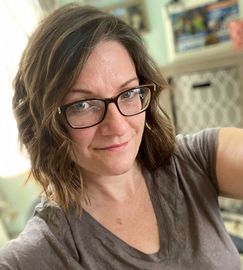- About Us
- Advertise / Support
- Editorial Board
- Contact Us
- CancerNetwork.com
- TargetedOnc.com
- OncLive.com
- OncNursingNews.com
- Terms & Conditions
- Privacy
- Do Not Sell My Information
- Washington My Health My Data
© 2025 MJH Life Sciences™ and CURE - Oncology & Cancer News for Patients & Caregivers. All rights reserved.
CAR-T Cell Therapies Could Change the Mantle Cell Lymphoma Landscape

However, the recent addition of new chemotherapy-free options such as chimeric antigen receptor (CAR)-T cell therapy could offer hope for patients with mantle cell lymphoma who develop resistance to chemotherapy-based treatment.
Mantle cell lymphoma (MCL) is a rare, aggressive form of lymphoma typically treated with combinations involving chemotherapy agents plus Rituxan (rituximab). However, the recent addition of new chemotherapy-free options such as chimeric antigen receptor (CAR)-T cell therapy could offer hope for patients who develop resistance to chemotherapy-based treatment.
In an interview with OncLive®, CURE®’s sister publication, lead investigator Dr. Michael L. Wang, from The University of Texas MD Anderson Cancer Center, offered background on the disease and where it may be headed in the future thanks to clinical trials like the one he is currently working on.
OncLive®: Can you provide a little background on MCL?
Wang: MCL is one of the many subtypes of lymphoma. It’s a rare disease. Oncologists, in their entire lives, might see only one or two patients. Therefore, it is very hard to get good at treating these patients.
The other issue is that MCL has been regarded as one of the most difficult to treat lymphomas. The prognosis is bad, it’s not curative. Therefore, when you compare the rareness of the population and less research, mantle cell lymphoma has been a deadly disease.
But this has changed and is changing very rapidly. Number one, the therapy has been migrated from chemotherapy to chemo-free therapies such as ibrutinib (Imbruvica), a BTK inhibitor, and acalabrutinib (Calquence), an oral single-agent, where a patient swallows one pill and the response and efficacy is better than five chemotherapies combined. The patient doesn’t lose their hair, they don’t need a central line, the blood counts don’t drop and the infection rate is much better. Targeted therapies are wonderful and they’re exploding, especially in combinations.
However, MCL is so malignant. It can progress through all the chemotherapies and targeted therapies you can give. A fraction of MCL patients still progress. That’s why we’re doing CAR-T cell therapies. This therapy offers a different way of attack. We get the patient’s T cells, we put them in the lab, we do the gene transfer and put it into a product, we amplify it and put the T cells back so it will find the lymphoma cells, bind to them and kill them. Many studies have shown this is a very effective therapy, even in very aggressive leukemias like acute lymphocytic leukemia (ALL) or large cell lymphoma.
What kind of data did you report during the 2019 American Society of Hematology (ASH) annual meeting?
I can only talk about what’s covered in the abstract, but out of the 60 patients included, we only reported on the first 28 patients. And even with 28 patients, the response rate was over 80% and the complete response rate was 53%. This is a very heavily treated population who have almost exhausted all of the existing therapies, and this response rate is very high.
Furthermore, the response is very durable. As I described in the abstract, it can last very months. Because this is an ongoing study and more time will elapse, we will have longer follow-ups, I am sure some of the patients will stay in remission for a long time, as other CAR-T cell therapies have done for ALL and large cell lymphoma.
See this story for updated data on this trial that was presented later at the ASH annual meeting.
Related Content:



